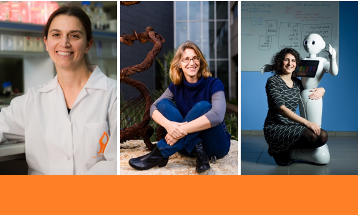
For most scientists in academia, a tenure-track position is both a major achievement and a long-awaited opportunity to gain independence and pursue their own research projects. But this independence comes with drawbacks: While scientists may be well-trained in high-level research methods, they often lack the non-academic skills required to succeed in academia, including identifying and recruiting excellent students, allocating resources, management skills, navigating institutional politics and mentoring.
This lack is particularly noticeable with regard to women in academia, who face additional challenges such as confronting gender stereotypes in the workplace, including stereotypes about women as group leaders, maintaining a healthy work–life balance, or dismissive attitudes that undermine the achievements of female scientists.
In an article published in the November issue of EMBO Reports, a peer-reviewed journal that focuses on editorial content that offers insight into the broader issues affecting science and society, Dr. Shelly Levy-Tzedek, head of the Cognition, Aging and Rehabilitation Laboratory and Dr. Neta Sal-Man, from the Shraga Segal Departmentof Microbiology and Immunology, together with the two initiators of the program, Dr. Galia Moran from the Charlotte B. and Jack J. Spitzer Department of Social Work, and Prof. Uri Alon from the Weizmann Institute of Science, review an alternative to the classical mentoring model, where a senior PI mentors a junior PI, usually in a one-on-one format.
The initiative, called the Junior Women Peer‐Mentoring Group, provides mentoring by the peer group, who draw on their experiences at other universities and academic centers to help one-another overcome common challenges.
“Studies show that female scientists find it more difficult to form mentorship relationships on their own," said Shelly Levy-Tzedek. “It's a critical to correct this imbalance in order to even the path for women to become successful scientists. We find that matching women with other women is an especially successful model to achieve this goal, because there is a natural openness that stems from discussing issues of common concern with other individuals who have undergone the same experiences."
The program was made possible by the support of the Office of the President of the University, Prof. Rivka Carmi, and the Office for Promotion of Women in Academia, headed by Prof. Iris Shai.